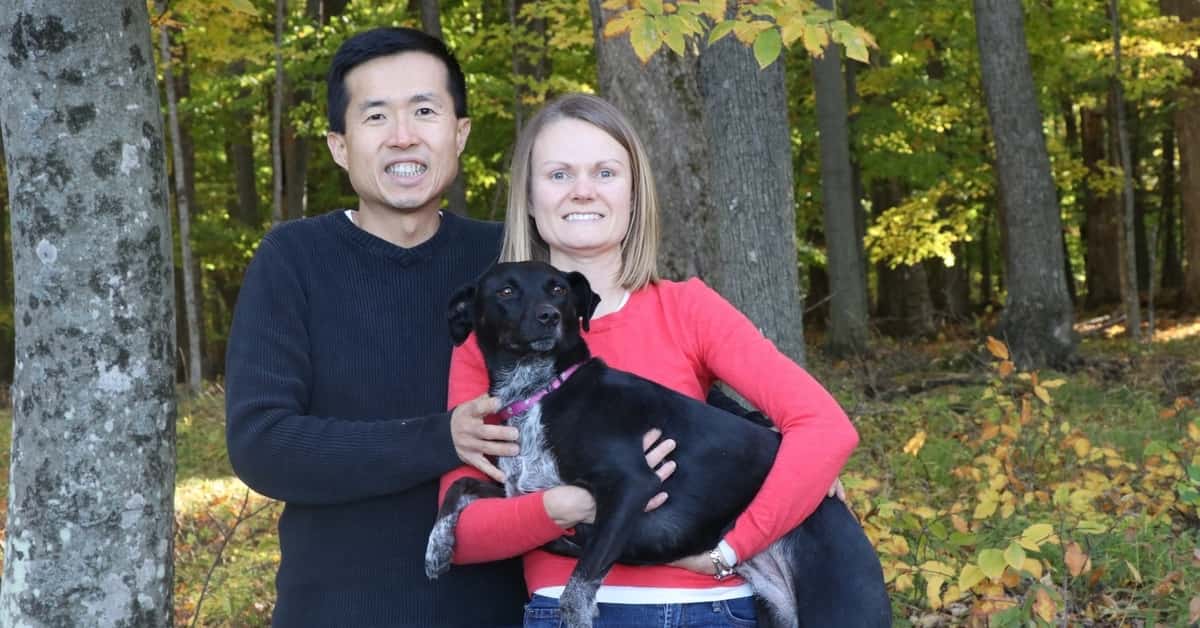
Dr. Wei-Chuan Wang – some know him by his American name, Glen – is an ophthalmologist with BayCare Clinic Eye Specialists. He is all about building and maintaining relationships.
Wang has done that since arriving in the United States as a teen from Taiwan to live with relatives on the East Coast.
“We actually immigrated to the U.S. when I was 14,” Wang says. “We have a bunch of family on my dad’s side that immigrated to the U.S. already. I have an uncle and his family that were in Baltimore, Maryland. At that time, this is back in the 1990s, when I was 14 years old when I came to the U.S., it was popular for people in Taiwan to send their kids in high school, middle school or elementary school to the U.S. to basically study and move on and either stay in the U.S. or go back. So my parents decided to send me and my sister to Baltimore.”
However, transitioning to a new life in America was a challenge, Wang says, especially given that only he and his sister immigrated to the U.S. His parents remained in Taiwan.
“There’s a lot of cultural difference in the living environment,” Wang says. “For example, in Taiwan, everything is very modernized. Imagine you’re in like New York City but the whole coast in Taiwan is like New York City. It’s all very crowded. It’s very urbanized. It’s a big city. I grew up in a city environment. Maryland is not small but it’s definitely not super urbanized. There’s a lot of cultural differences in terms of living environment. For example, people in Taiwan rely more on public transportation.”
Although thousands of miles away from his parents, Wang followed them into medicine.
“I think having grown up in a family with my dad being a physician and my mom being a pharmacist, I think I had that natural inclination but it really wasn’t on my radar until later in college when I had volunteer experiences in hospitals, which kind of piqued my interest, and I always enjoyed studying natural science or biology. Those were subjects that always fascinated me and that I found interesting.”
With his parents’ support from afar and relatives’ support here in the States, Wang received his undergraduate degree from the University of Virginia. He completed medical school there as well.
From afar, his father offered advice that steered Wang to ophthalmology.
“With my dad having some experience in medicine already, he kind of recommended, ‘Why don’t you do ophthalmology and do the retina specialty?’” Wang says. “So, I thought maybe I’ll be good at doing that.”
The opportunity to go into a medical specialization that would enable him to build long-term relationships with patients while diagnosing and treating eye and retina conditions was appealing, Wang says.
He attended ophthalmology school at the University of Texas Medical Branch at Galveston and completed his fellowship at the University of Texas Health Science Center at Houston.
Wang moved to Wisconsin to be with the woman who became his wife, Sara. He has been practicing with BayCare Clinic Eye Specialists since 2010.
As he expected, Wang enjoys building and maintaining those long-term relationships with patients, whom he says are like family.
“Even though they come in and I give them medical advice and things get treated, a lot of the time we talk about their family, I see how they’re doing and things like that and it just becomes a natural thing that you will ask them about,” Wang says. “I enjoy that two-way relationship in terms of not just asking them but when the patient asks how my family is doing. I really enjoy that. That’s important to me.”
Wang offers individualized care tailored to meet each patient’s needs, he says.
“I try to be flexible in terms if someone has a certain need,” Wang says. “Because when people come in, especially if it’s a retina specialist, they can get kind of nervous. The things that I want to do for them is to make sure that they are at ease, especially for people with pain and discomfort.
“It’s not just like we do the same way for everybody. Everybody requires something a little unique, a different technique, a different operation. Everybody’s perception and need is different.”
Outside of diagnosing and treating patients, Wang likes to hike and jog. He’s an active member in his church and enjoys playing board games with his wife and two children.